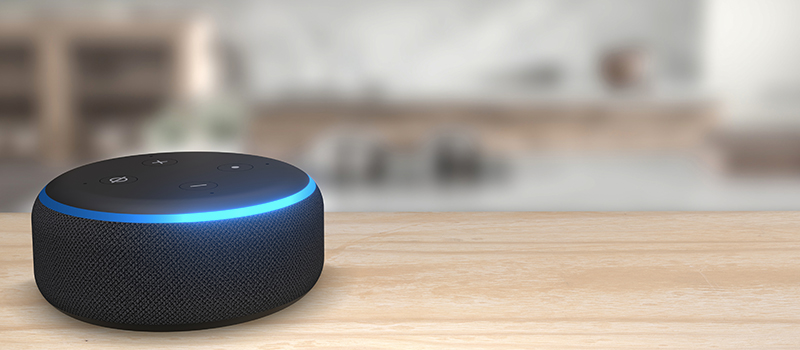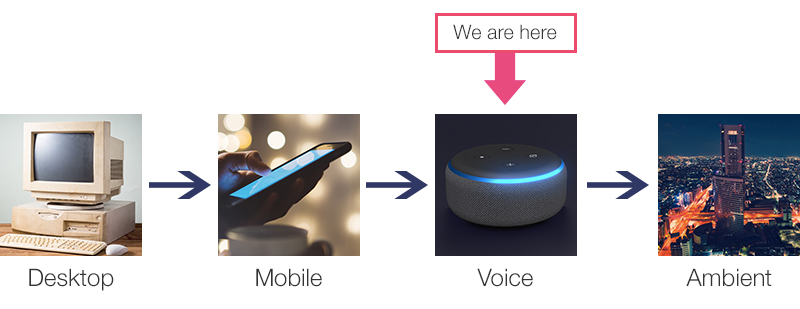
Let’s explore the exciting road ahead.
Deeper conversations
In the four years since Alexa first launched significant progress has been made with AI, natural language processing and machine learning.
Expect smart speakers to get much better at understanding the context of conversations. Amazon are using sophisticated deep-learning techniques to improve comprehension, and Google are deploying machine learning to help predict flight delays and other factors.
We will have much more natural conversations with our devices, and they will be able to adjust to our mood, intonation, time of day and even factors such as weather and traffic conditions.
Sound and vision
The launch of smart speakers with screens including the Echo Show and Google Home Hub provide new opportunities for rich multi-modal experiences.
Use cases include:
- Immersive brand experiences
- Product showcases
- Education and learning
- Narrative and storytelling
Voice everywhere
As outlined in the previous article expect to see voice technology to become ever more prevalent, and technology generally become both more intuitive and immersive.
The last two decades have seen a shift from a desktop based world to mobile and touch interfaces. We are now in the voice generation, and ultimately moving rapidly towards a near future that includes 5G, billions of connected Internet of Things devices, sensors and smart cities. Voice will form a key component of this, and help us navigate these emergent digital services.

This convergence of technology is sometimes referred to as ambient / ubiquitous computing characterised by zero touch interfaces.
Physical platforms will become less important as we will consume digital services, content and information from wherever we are. Intuitive voice technology will be a key catalyst in this revolution, and free us from the need to be constantly on our mobile devices and laptops.